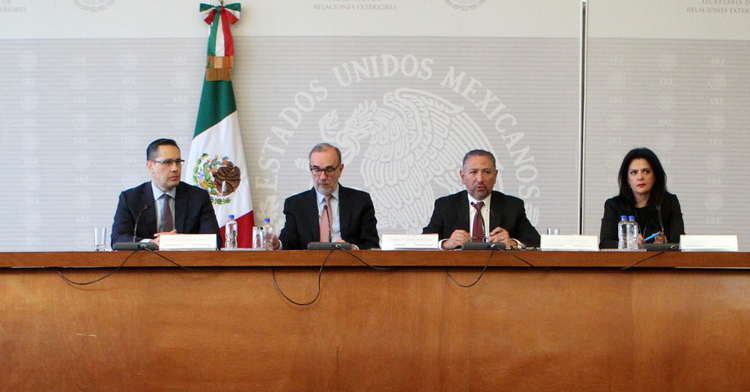The Foreign Ministry reports that from the year 2000 to date, the Mexican Capital Legal Assistance Program (MCLAP) in the United States has helped 1,014 of 1,150 Mexicans in U.S. prisons avoid the death penalty, which means that the ruling has been reversed in 88% of the cases.
The Undersecretary for North America, Carlos Manuel Sada Solana, explained at a press conference that the program "has had encouraging results in defending our fellow citizens" and that the Mexican government does not use the program to condone crimes but rather to help all Mexicans gain access to due process.
The Foreign Ministry created the program in September 2000 to assist Mexican citizens facing the death penalty in the U.S. and to better defend them from the time of their arrest to the post-conviction processes, both in states with capital punishment and in federal courts. Since 2001, the program has included not only Mexicans already sentenced to death but also those facing charges that could lead to the death penalty.
Foreign Ministry Legal Adviser Alejandro Alday González explained that the death penalty has been reversed in 98% of the cases in which MCLAP has led the defendant’s defense from beginning to end.
The Undersecretary for North America stressed that, in addition to this Legal Aid Program, Mexico also works with the U.S. legislature on an ongoing basis to ensure that consulates are notified and consular access is given as a generalized practice throughout the United States as per the Vienna Convention.
Ambassador Jacob Prado González, Director General for the Protection of Mexicans Abroad, said that at present 54 Mexicans have received the death penalty and 75 more face criminal charges that could put them on death row. Of the 54 who have already been sentenced, 33 are part of the Avena case, in which the International Court of Justice ruled that the Vienna Convention on Consular Relations had been violated because the accused were not allowed access to legal and consular assistance from the Mexican government from the beginning.
Lastly, regarding the death penalty given to the Mexican citizen, Rubén Cárdenas Ramírez (which is scheduled to be carried out on Wednesday, November 8 in a Texas prison), the Undersecretary for North America reiterated that Mexico would work until the very last minute on a moratorium or stay of execution.
